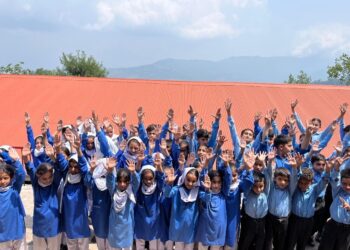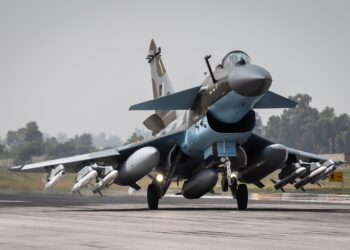LAHORE – In a groundbreaking move aimed at enhancing rural development and uplifting the standard of living in Punjab’s villages, Punjab Chief Minister Maryam Nawaz Sharif chaired a high-level review meeting to assess progress on the Model Village Project, part of the broader initiatives under Clean Punjab, Ideal Village, and Waste to Value Programs. The project focuses on upgrading basic infrastructure in villages across Punjab through the construction of paved streets, rehabilitation of rural roads, and the creation of recreational parks for children.
These development projects are part of a long-term strategy to transform 1,200 villages across Punjab into “Ideal Villages” that reflect cleanliness, modern infrastructure, environmental sustainability, and improved quality of life for rural citizens.
Vision Behind the Model Village Project
Under the dynamic leadership of Chief Minister Maryam Nawaz, the Punjab government aims to bridge the urban-rural divide by bringing modern amenities, digital solutions, and sustainable infrastructure to remote and underserved areas. The Ideal Village Project seeks to redefine rural living by ensuring access to clean water, sanitation, solid waste management, green spaces, and energy-efficient systems.
This initiative is not just about building infrastructure; it is about building hope, dignity, and opportunities for millions living in rural Punjab. The project intends to provide holistic rural upliftment, touching every aspect of daily life—from sanitation and clean drinking water to environmental care and children’s recreation.
High-Level Review Meeting: Key Decisions and Progress Highlights
During the recent meeting chaired by the Chief Minister, detailed briefings were provided on the status of the Ideal Village initiative, as well as associated programs such as Clean Punjab and Waste to Value. Key updates included:
- 1200 villages selected for transformation under the Model Village Project.
- 130 villages already developed in the pilot phase.
- Each Ideal Village will have:
- 24/7 clean water supply.
- Modern sewage and drainage networks.
- Paved and well-lit streets.
- Rehabilitated rural roads to improve connectivity.
- Children’s parks and green zones for community recreation.
- Proper house numbering and street signage for navigation and administrative organization.
- Tree plantations to improve environmental health.
- Solar-powered water supply and sewage systems, ensuring energy efficiency and sustainability.
These elements are part of a comprehensive rural transformation blueprint aimed at improving health outcomes, facilitating mobility, and providing children and families with safe and clean environments.
Focus on Infrastructure: Paved Streets and Roads for Mobility
One of the central components of the Ideal Village Project is the construction of paved streets and rehabilitated rural roads, which play a critical role in improving:
- Accessibility to schools, clinics, and markets.
- Mobility for farmers and traders to transport goods efficiently.
- Reduction in dust and muddy conditions, which have health implications and impede transport.
Villages have historically faced challenges such as unpaved paths, narrow alleyways, and poorly maintained roads. This initiative promises to bring rural Punjab on par with urban standards, promoting equitable development.
Recreational Spaces for Children: A New Rural Focus
In an unprecedented move, the Punjab government will also be building dedicated children’s parks in every model village. These parks are not merely for recreation—they also serve multiple purposes:
- Physical and mental development of children through play.
- Safe, clean environments for social interaction and leisure.
- Family spaces that foster community bonding.
- Encouragement for green and open spaces that promote environmental awareness.
This child-centric approach shows the government’s commitment to inclusive development, addressing the needs of every age group in rural communities.
Clean Punjab and Waste to Value: Sustainability and Sanitation First
In tandem with the Model Village initiative, the Clean Punjab and Waste to Value projects aim to revolutionize waste management in villages. According to the briefing:
- Each village will be equipped with waste collection points.
- Solid waste treatment plants will be constructed to convert waste into energy or compost.
- Villagers will be trained on waste segregation and recycling practices.
- Sewage systems will be connected to bio-treatment plants to ensure no environmental contamination.
This reflects a shift toward environmentally responsible governance, ensuring that the development of infrastructure is not at the cost of ecological degradation.
Digital Mapping and Signage: A Step Toward Smart Villages
Another innovative feature of the program includes assigning numbers to houses and placing signboards on every street. This has several implications:
- Improves emergency response services such as ambulance access.
- Assists in mail delivery, census, and recordkeeping.
- Paves the way for digital mapping and GIS systems, leading to smart village development.
- Helps with the formalization of informal settlements, ensuring better integration into municipal frameworks.
Through these systems, the government plans to bring rural areas into the digital fold, enabling smarter governance and citizen services.
Emphasis on Renewable Energy and Water Access
Chief Minister Maryam Nawaz also underscored the importance of energy-efficient water supply systems, including:
- Installation of solar-powered tube wells.
- Development of solar-integrated sewage treatment units.
- Introduction of low-energy water purification systems.
This transition to renewable energy sources not only reduces the carbon footprint but also cuts long-term energy costs, making water supply systems more sustainable and climate-resilient.
Tree Plantation and Greening Initiatives
Environmental health remains a core component of the project. A tree plantation drive is being launched in every Ideal Village to:
- Combat climate change and deforestation.
- Improve air quality and reduce rural heat zones.
- Enhance the aesthetic and ecological value of the region.
- Promote biodiversity in local ecosystems.
The plantations will be undertaken in partnership with local communities, creating a sense of ownership and responsibility among villagers.
Maryam Nawaz Calls for Fast-Track Implementation
While reviewing the project’s timeline, Chief Minister Maryam Nawaz directed relevant authorities to set clear deadlines and expedite the completion of remaining work. She emphasized:
“The people of Punjab deserve nothing less than clean, safe, and beautiful villages. Our goal is to create a rural landscape that reflects the dignity, resilience, and aspirations of our people.”
She also instructed provincial departments to collaborate efficiently, eliminate red tape, and ensure transparency in the execution of funds and resources.
Public Reception and Community Involvement
Initial feedback from the pilot villages has been overwhelmingly positive. Residents have reported:
- Improved sanitation and water availability.
- Ease of movement due to paved roads.
- Safer play environments for children.
- Enhanced community pride and cohesion.
Local communities are also being encouraged to actively participate in monitoring progress and maintaining new infrastructure, ensuring long-term sustainability of the initiative.
Conclusion: A Bold Step Toward Rural Transformation
The Punjab government’s plan to build paved streets, rehabilitate rural roads, and create recreational parks for children represents a bold and visionary step toward comprehensive rural development. Under the leadership of Chief Minister Maryam Nawaz Sharif, the Model Village Project is poised to set a national benchmark for rural transformation, focusing not only on infrastructure but also on cleanliness, inclusivity, innovation, and environmental consciousness.
With successful implementation and community ownership, these Ideal Villages could serve as a model for the entire country, demonstrating that true progress begins when no citizen is left behind—regardless of geography.

























